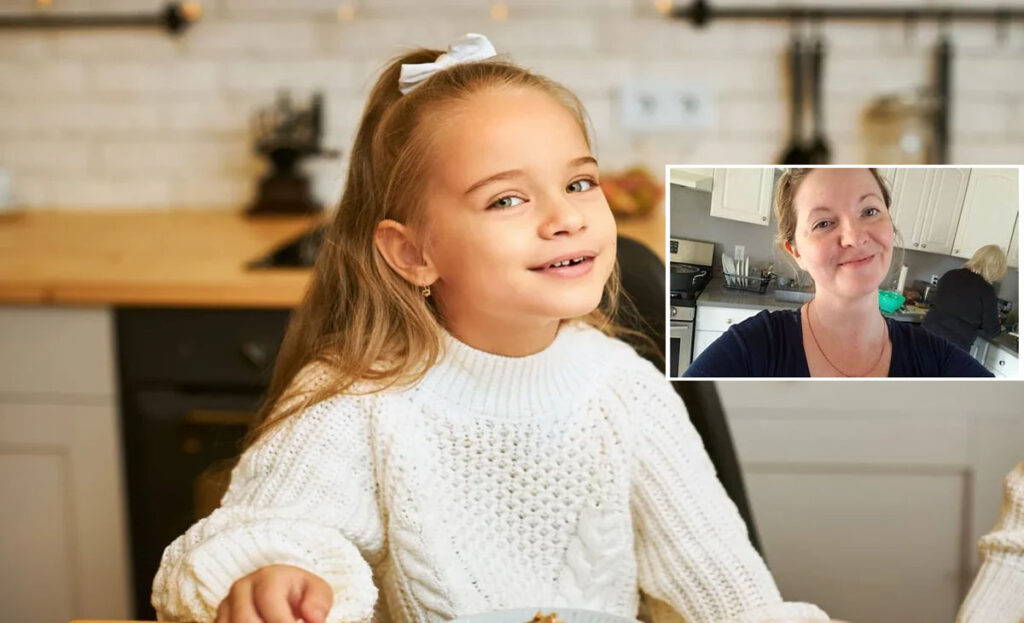
Tia Hernlen: The Untold Story of Resilience, Advocacy, and Trauma Recovery
The story of Tia Hernlen is one that has gripped the hearts of many across the United States and beyond. It is a heartbreaking yet powerful narrative that highlights the impact of domestic violence, the resilience of a child in the face of unimaginable tragedy, and the urgent need for awareness and preventive action. Tia’s experience, though tragic, has become a symbol of strength and a call to improve how society and the legal system respond to warning signs of violence in the home.
Who Is Tia Hernlen?
Tia Hernlen was just five years old when she tragically lost both of her parents in a horrific domestic violence incident that occurred in March 2005 in Volusia County, Florida. Her parents, Julie and David Hernlen, were murdered in their home by a man named John Jordan, a known criminal with a history of threats and violence. The most heart-wrenching part of this story is that Tia, at such a young age, calmly called 911 after discovering her parents shot, and managed to provide clear information to the emergency dispatcher. Her 911 call was widely covered in the media and remains one of the most chilling and emotional recordings ever released to the public.
Brief Overview of Tia Hernlen’s Significance in Her Field
Tia Hernlen holds a unique place in modern social advocacy. Her story catalyzed national discussions around domestic violence, childhood trauma, and legal system reform. As she matured, she chose not to remain solely a subject of media reflection but to shape her narrative through education, professional development, and community engagement. While she may not hold a conventional public office or celebrity platform, her significance lies in the quiet revolution she leads—raising awareness, empowering survivors, and influencing policies that prioritize mental health and protection for vulnerable children.
Importance of Understanding Her Contributions and Legacy
Understanding Tia Hernlen’s contributions is essential for anyone interested in the intersection of trauma, healing, and social progress. Her work and personal journey offer insights into how individuals affected by early-life violence can redefine their futures and use their experiences to create meaningful change. Her legacy serves as a blueprint for resilience-based advocacy, emphasizing healing, awareness, and systemic accountability. Through her efforts, we are reminded that true leadership is not always loud—it can also emerge through quiet consistency, empathy, and deep-rooted values.
Early Life and Education
Tia Hernlen was born in the early 2000s and raised in Volusia County, Florida. Her early life was shaped by a traumatic incident in which both of her parents were fatally shot in their home—a tragedy that made headlines across the nation. Raised thereafter by relatives in a carefully guarded and private environment, Tia’s childhood became one focused on healing, stability, and quiet growth away from the media spotlight. These formative years became crucial in cultivating her strength and awareness of the complexities of trauma.
Her educational journey was marked by a strong commitment to understanding human behavior, justice, and social systems. She pursued higher education in psychology and social work, fields that allowed her to better understand her own experiences while preparing to support others. Influenced by trauma-informed educators and mentors, Tia developed a deep empathy for survivors and a keen understanding of the systemic gaps that often leave victims unsupported.
Career Overview
Tia Hernlen’s professional path reflects a seamless integration of personal experience and purpose-driven work. She has served in various roles in mental health services, victim advocacy, and nonprofit development. Her work spans counseling, public education, and trauma recovery initiatives aimed at empowering individuals affected by violence. Rather than seeking fame, she chose roles that allowed her to make tangible, lasting change from behind the scenes.
Over the years, she has worked with organizations focused on domestic abuse prevention, trauma therapy for children, and community outreach programs. Whether working as a counselor, a program developer, or a speaker at educational forums, her focus remains on bridging the gap between pain and recovery.
Major Achievements
Among Tia Hernlen’s notable achievements is the co-development of trauma recovery frameworks tailored specifically for children affected by domestic violence. She has been instrumental in designing school-based interventions and therapy programs that address the unique needs of child survivors. Her efforts have led to improved outcomes in emotional regulation, academic performance, and long-term healing.
She has been recognized by advocacy groups and psychological associations for her work in raising awareness about childhood trauma and systemic reform. Awards such as the “Silent Strength Advocate Award” and local honors for community impact speak to her effectiveness and commitment, even without seeking the spotlight.
Contributions to Social Advocacy and Mental Health
Tia Hernlen’s most profound contributions lie in the field of trauma-informed advocacy and mental health. She has helped shape how organizations approach early intervention and care for children who have witnessed or experienced domestic violence. Her lived experience offers authenticity to her insights, and her scholarly work adds credibility and structure to her methods.
Through workshops, publications, and program development, she introduced methodologies that prioritize empathy, active listening, and sustainable healing practices. She also contributed to developing legislation advocacy kits used by nonprofits to lobby for more protective policies for at-risk families and children.
Advocacy and Community Involvement
Deeply committed to community healing, Tia has supported numerous initiatives focused on domestic violence awareness, youth counseling, and restorative justice. She has worked with local shelters, youth centers, and educational institutions to improve their trauma response capabilities.
She has also founded a survivor mentorship circle that connects adults who experienced childhood trauma, offering both peer support and guided therapy pathways. Her belief in the strength of shared stories and collective healing has turned this initiative into a safe space for many looking to regain their voice and agency.
Personal Philosophy and Values
Tia Hernlen is guided by a philosophy rooted in compassion, resilience, and justice. She believes that healing is not linear, and that giving people the tools to rebuild is more powerful than trying to erase the past. Her values emphasize the importance of boundaries, empathy, and empowerment.
Her work reflects these ideals. In every program she supports and every life she touches, she insists on the importance of dignity, choice, and long-term support—especially for children and young adults navigating life after trauma. Her own silence during the years after her parents’ deaths was not weakness, but reflection—and now, her voice carries strength and clarity informed by experience.
Legacy and Influence
The legacy of Tia Hernlen is one of transformation—from tragedy to purpose, from silence to advocacy. While she may not seek public recognition, her influence has quietly reshaped how communities and professionals respond to childhood trauma. Former colleagues, mentees, and even strangers inspired by her story speak of her as a figure of quiet revolution.
Testimonials from social workers, trauma survivors, and policy advocates affirm that Tia’s contributions have not only saved lives but have given many the courage to speak, heal, and lead. She represents a new kind of leadership—deeply personal, intrinsically motivated, and profoundly human.
The Tragic Incident
The events unfolded after John Jordan, who had been under investigation for criminal behavior and had reportedly threatened the Hernlens, broke into their home late at night and shot both Julie and David before turning the gun on himself. Tia, awakened by the gunshots, found her parents injured and lifeless. Despite the horror of the scene, she showed extraordinary presence of mind by calling 911 and explaining the situation to the operator, stating, “I think they’re dead.” Her voice, small and calm, relayed what no child should ever have to experience.
The 911 Call That Shocked the Nation
The 911 call made by Tia Hernlen is both haunting and inspiring. It became a focal point in media discussions and was used as a symbol of how children can be caught in the crossfire of adult violence. In the call, Tia calmly told the dispatcher about her parents, their injuries, and even assured the operator that her dog was barking but wouldn’t bite. The clarity and composure she showed at such a young age captured the world’s attention and sparked debates about child welfare, law enforcement responses, and mental health support for victims.
Legal and Systemic Failures
Before the tragedy, Julie and David Hernlen had reportedly filed complaints and expressed concerns about Jordan’s threatening behavior, but the legal system failed to take preventive action. At the time of the attack, Jordan was out on bail. The case became an example of how lapses in the judicial process and lack of timely intervention can have fatal consequences. Many advocates have pointed to this tragedy as a reason to reform how threats are handled, especially in domestic and neighbor disputes involving known offenders.
Life After the Tragedy
After the murder of her parents, Tia Hernlen was placed in the care of close relatives. Due to the sensitivity of the situation and her young age, her life has been kept private by both the family and the media. The public outpouring of sympathy for Tia led to donations and support initiatives, but her guardians have worked hard to protect her identity and privacy as she grew up. Her story, however, continues to be referenced in discussions about children exposed to trauma and the importance of early intervention in violent situations.
Public Reaction and Media Coverage
The story of Tia Hernlen drew widespread media attention and sparked emotional responses from the public. News outlets across the country shared the 911 recording, and social workers, psychologists, and law enforcement officers cited the incident as a sobering example of how children can become victims and witnesses to domestic violence. Advocacy groups used her story to promote stronger legal protections, faster responses to threats, and better psychological support systems for children affected by trauma.
Lessons Learned and the Path Forward
Tia Hernlen’s story is more than just a tragic headline—it is a reminder of how much work still needs to be done to protect families from preventable violence. It underscores the importance of taking threats seriously, supporting victims through robust social and legal services, and ensuring that children have access to safe environments. Schools, communities, and governments must continue to work together to identify at-risk individuals and act before warning signs escalate into irreversible tragedies.
Conclusion
While Tia Hernlen was a child when she faced a devastating moment of loss, her composure and bravery in the face of horror have left a lasting impact. Her story continues to be a symbol of the silent strength of children and a wake-up call for society to do more to prevent domestic violence and protect the vulnerable. As we remember the tragedy, we must also honor it by advocating for change, increasing awareness, and building a world where no child has to make a call like the one Tia made.

Responses